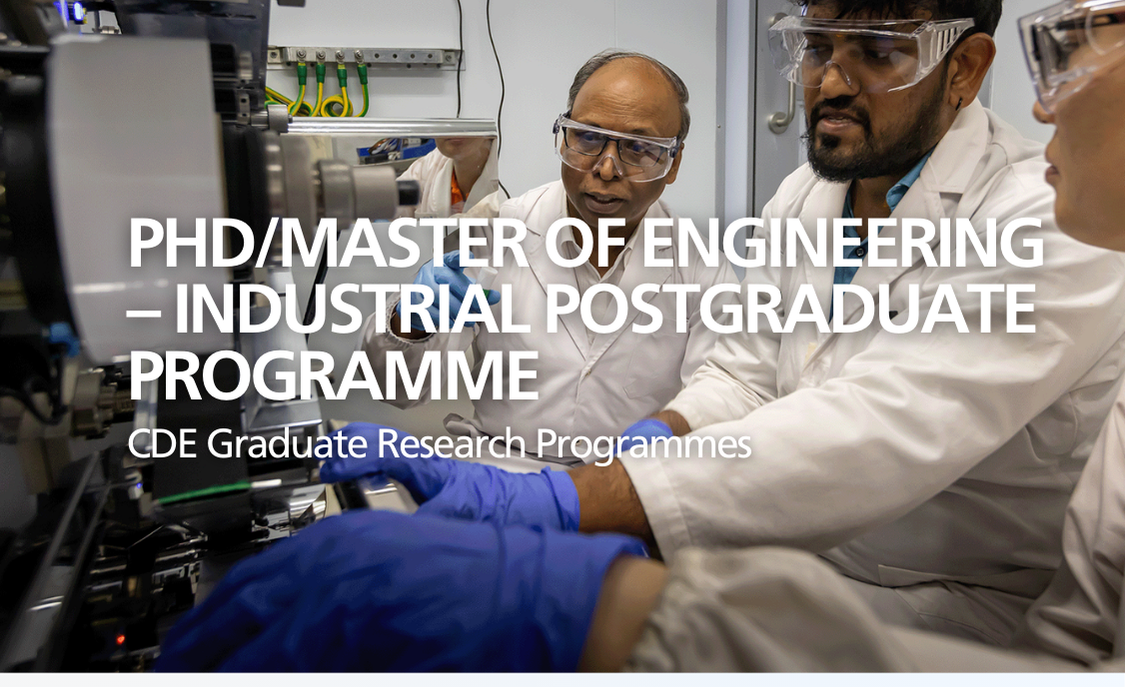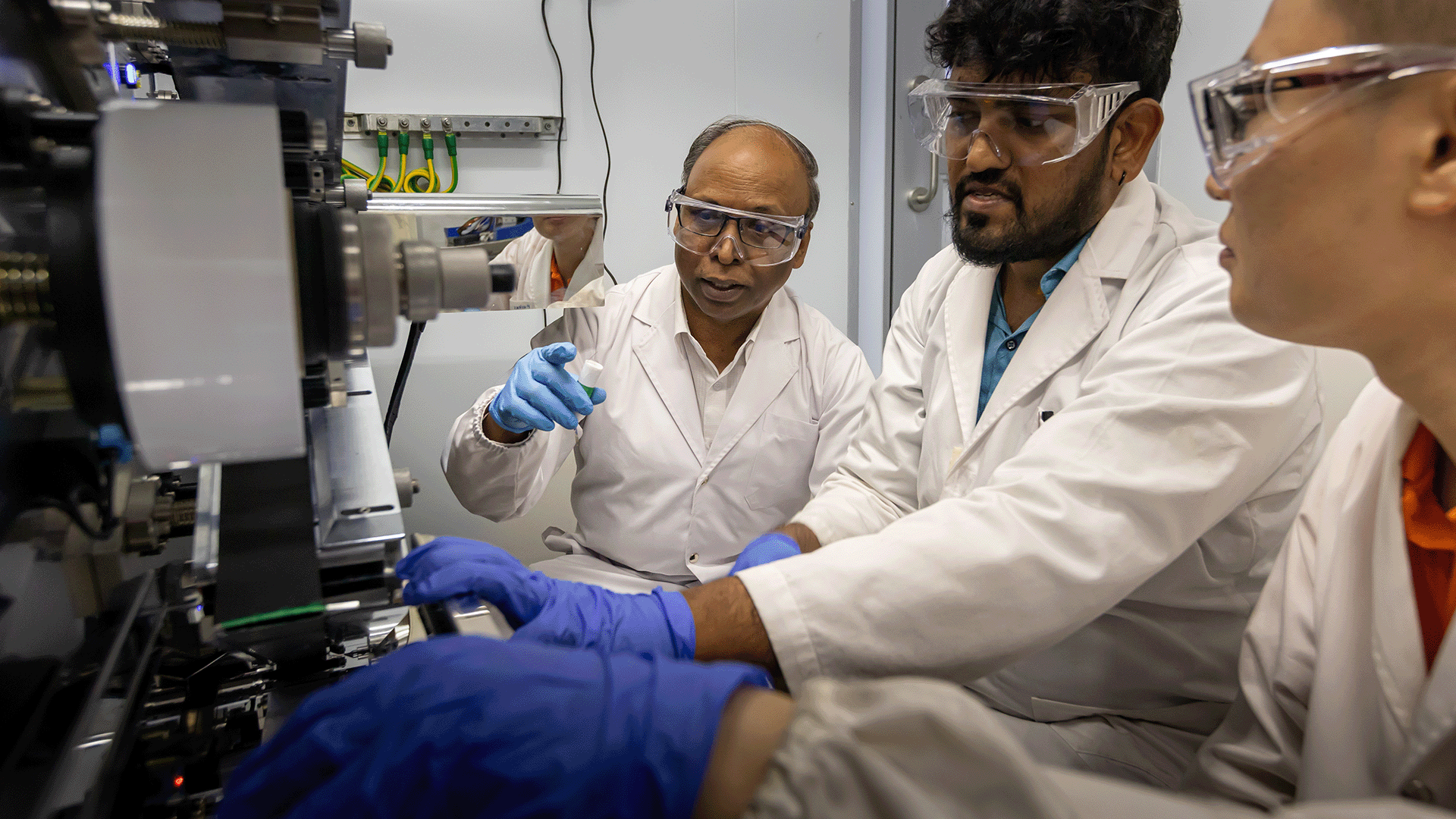
OVERVIEW
The Industrial Postgraduate Programme (IPP) is a full-time programme leading to a thesis based on research in partnership with companies. The company can be a private corporation, a private non-for-profit organisation, a government linked company, a government agency, or a statutory board.
Programme Features
All students who have successfully completed their requirements under this mode will be awarded the existing degree of Doctor of Philosophy or Master of Engineering, depending on the degree registered for.
The essential differences in the IPP mode are:
- the nature of the research
which has a deeper industrial focus. Project proposals are usually initiated by the company as such. The student is also typically a full-time salaried employee of the company who is pursuing this programme on full-time basis;
- it typically involves a funding agency other than the company itself.
Funding agencies may have specific criteria for approved companies and student eligibility. Interested Companies may approach the funding agency (e.g. EDB) directly to seek approval to participate in its funding scheme as well as for the terms and conditions.
- student is expected to spend at least 50% of his/her time on the project in the company premises.
Further information are available for:
Applicants
Applicants for this programme are usually employees or potential hires of the sponsor company.
Candidates who are keen to pursue this option may approach their advisors (e.g. final year project advisors) or your department to discuss/explore possibilities.
Advisors
There is at least a NUS Engineering academic staff and a member from industry, usually from company.
Research Project
Project proposal is typically initiated by the company and has a deeper industrial focus. Student is expected to spend at least 50% of his/her time on the project in the company premises.
Degree Requirements
Since the degree awarded to the student under this track is identical to the existing PhD/MEng programme, the existing established academic rigour of PhD/MEng will apply, so as to safeguard quality assurance of this track, including prevailing requirements on:
- Admission
- Candidature
- Residence and Leave
- Continuation
- Degree
(coursework, PhD qualifying exam, thesis defence, thesis exam etc)
- Examinations
- Graduation
- Downgrading of candidature
Application Form
Application forms are obtainable from the Department, upon request as candidates are usually identified by their sponsoring companies.
Industry Partners
Companies interested in IPP may approach the respective NUS CDE staff member or the Department directly if they already have existing contacts or NUS CDE Vice-Dean (Research & Technology) Office for a match of interest areas to the relevant CDE departments.
The ensuing discussions could include identifying research needs and the most suitable type of collaborations:
- Consultation
- IPP
- Research Collaborations
Role of Industrial Advisors
The role of the industrial advisor is to:
- Serve as a liaison between NUS CDE and his/her company on all matters related to the research project and/or the student
- Facilitate the student’s research activities within the company
- Ensure that sufficient amount of time is devoted by the student on the project
- Alert NUS CDE with regards to potential problems in the student’s research progress
- Familiarise the student on the industrial aspects of the student’s research project
- Provide the industrial perspective to guide the student in his/her research
Funding
Research projects deemed suitable for IPP would follow the IPP workflow for approval. The IPP mode may involve a funding agency, other than the company itself. If so, a typical tripartite framework could be:
- Funding agency provides sponsorship to the students, including tuition fees for a stipulated period (normally four years for PhD and two years for MEng), salary subsidy, grant for R&D and project-related fees for NUS CDE to run this programme.
- Company provides part of salary, mentorship and research facilities, project-related fees.
- NUS CDE provides mentorship, research facilities and ensure academic rigour.
- A possible tripartite funding framework is available upon request from the NUS CDE faculty staff member.
- Companies may need to approach the relevant funding agency on being a participating company under the IPP mode.
Contractual Agreement
A Research Collaboration Agreement (RCA) between the company and NUS Engineering is typically drawn up. It stipulates details on the research project, funding and Intellectual Property matters. Further details are obtainable from CDE Vice-Dean (Research & Technology) Office.
NUS CDE Staff Members
The IPP application and processing workflow and forms to process for IPP can be obtained from your Department Office.
Following successful discussions with the industry partner, the “IPP Project Proposal Form” is to be completed before each application’s intake deadline, for submission to the administrative staff of your Department. Please approach the relevant staff in your Department for the details.
College of Design and Engineering, NUS
Blk EA #06-16
9 Engineering Drive 1
Singapore 117575



